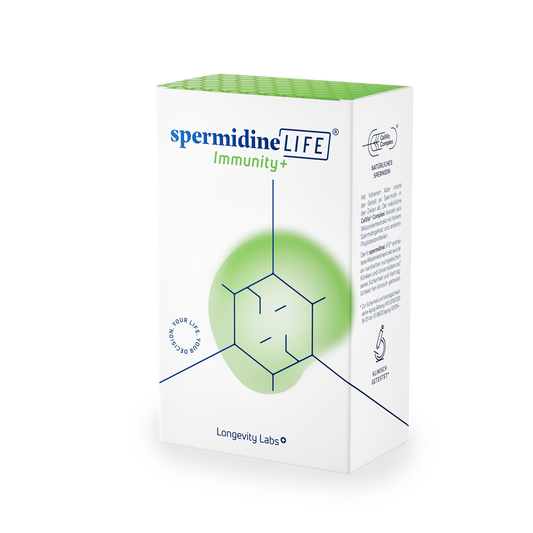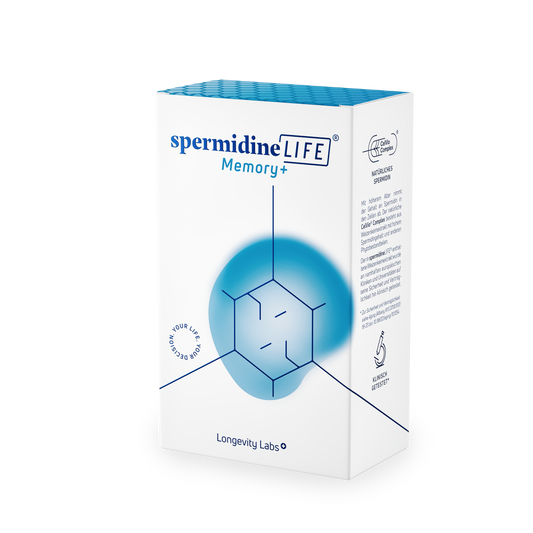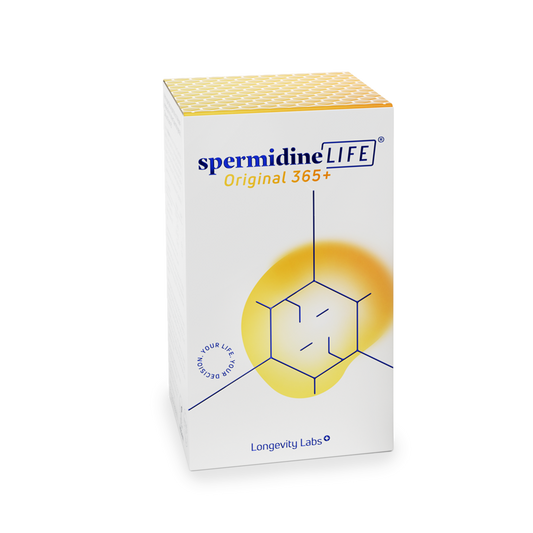
Zinc: function in our brain cells
Science, TLL LongevityLabsOur body is particularly good at breaking down food into its component parts, filtering the nutrients from them, and using them in the cells where they are needed. This is also true for our brain cells - which is why our diet not only has a direct impact on our energy levels, physique and cellular health, but also on our mood and cognitive abilities!
Have you ever noticed that in all of our products, Spermidine appears hand-in-hand with Zinc as an additional ingredient? There's a good reason for this: just as our bodies either excrete or accumulate excess nutrients, they respond to various deficiencies by making some processes in our cells function less fluidly.
Zinc is an indispensable nutrient in our brain cells. This is because zinc is not only responsible for metabolism, but also for our ability to think, our drive and our ability to react. That is why the consequences of a zinc deficiency are all the more serious. In children, a zinc deficiency can lead to learning difficulties and concentration problems. In adults, a persistent zinc deficiency can lead to restlessness, listlessness, mood swings and, in severe cases, even depression.
Study results
As an example: In a U.S. study, in which more than 200 children were tested to see how zinc supplementation affects mental performance, it was found: The children who consumed more zinc performed better on tests of attention, concentration, learning ability and memory skills!
What zinc does in our brain cells
Our brain is the center for all the processes that go on in our body. Every signal, hormone, change, movement and thought is controlled, regulated and constantly adjusted by our brain. These processes are all essential for our body to work as flawlessly as possible and for us to perceive, process and react to all information from the environment.
In order for all this information to be communicated smoothly between our brain cells, special nerve messengers (also called neurotransmitters) are needed. There are some messengers that have activating effects (such as dopamine) and others that have calming or inhibiting effects. Zinc is an important component of some enzymes in our brain, which is why it is involved in the formation of these messenger substances.
At the same time, it is involved in the process of converting chemical stimuli into electrical signals. This means that chemical impressions such as smells or tastes are converted into information in our brain cells thanks to (among other things) zinc, which enables us to process and classify them.
As the last most important point, zinc is involved in the signal transmission between the individual synapses (i.e. the contact points between the nerve cells). This is because there it is responsible for dampening the excessive excitation of nerve cells and preventing our body from overreacting to any signals.
But how exactly does a zinc deficiency manifest itself?
In the case of a zinc deficiency, there are thus some signs that indicate that our brain cells are working in an imbalance. For example, if messenger substances that activate our nerve cells are missing because they cannot be formed without zinc, chronic fatigue, listlessness or depression may result. If, on the other hand, too few inhibitory neurotransmitters are present due to a zinc deficiency, this can lead to anxiety or increased aggressiveness.
Involvement in the "translation" of chemical signals into electrical signals can also lead to disorders of the sense of smell or taste in the case of a deficiency.
So how can we prevent a deficiency?
Especially through our diet, we can have a lot of influence on what nutrients our body has available. There are some foods that provide all the important ingredients for your brain cells. These include, for example, whole grain bread, fish, nuts and fruit! You can read more in our blog about Brainfood!
Conclusion
Zinc, along with other nutrients, plays an important role in signaling between our brain cells, making it very important not only for our cognitive abilities, but also for our mood! Thus, a deficiency can cause mood swings, fatigue and even depression. A healthy and balanced diet is therefore particularly important for the health of our gray cells!






